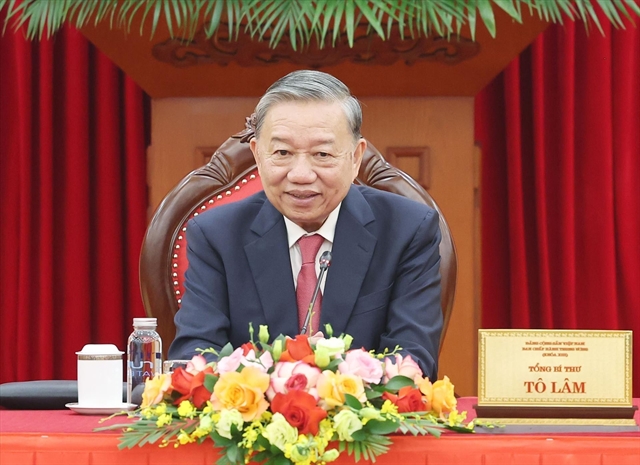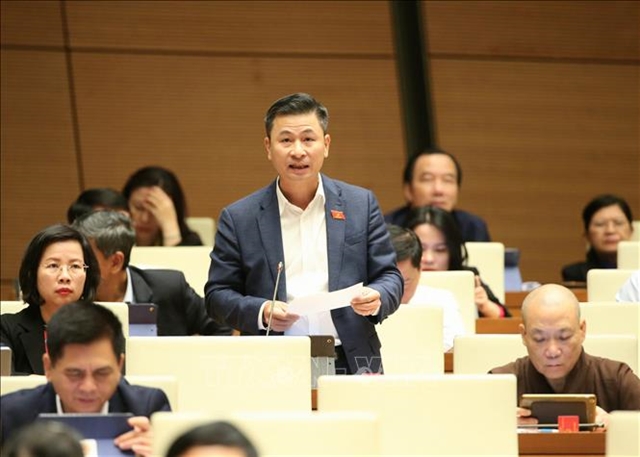 Politics & Law
Politics & Law


|
| National Assembly deputy Nguyễn Phi Thường discusses the implementation of metro projects at the 10th NA meeting in Hà Nội on Tuesday. VNA/VNS Photo Doãn Tấn |
HÀ NỘI - National Assembly deputy Nguyễn Phi Thường from Hà Nội has urged transport authorities to learn from experience and not to delay major metro projects any longer.
Speaking at the 10th meeting of the assembly on Tuesday, Thường said as Hà Nội and HCM City were becoming megacities with a population of more than 10 million people each, building metro lines was a crucial solution for their overloaded traffic networks.
However, these projects had been postponed for a long time, and the authorities must take their part of the responsibility, he said.
“These are all very big projects with large investments poured in, but their progress is very slow which raise concerns from people,” he said, citing the metro routes of Cát Linh-Hà Đông and Nhổn-Hà Nội Rail Station, and Bến Thành-Suối Tiên, Bến Thành-Tham Lương in HCM City.
“Concerned authorities must review their work and see what they can learn from these projects, and not to repeat their mistakes for the next ones.”
Eight metro routes are being built in Hà Nội and HCM City, with a total length of 538km and worth US$55 billion.
Thường also said the metro routes needed to be built in sync with the cities’ urban space and lifestyle.
“Houses facing the streets, the ‘pavement economy’ and using motorbikes are the distinctive features of Viet Nam’s urban areas. Motorbikes are still the most common means of transportation and will become a major competitor to the metro,” he said.
Restructuring urban spaces and creating incentives for people to use the metro also need to be taken into consideration, he added.
Vietnamese transport experts should also soon master the technologies needed to build urban rail lines instead of relying on different technology companies, he said.
Thường also urged the National Assembly and the Government to launch the Cát Linh-Hà Đông metro route by the end of this year after it has been postponed eight times since the second quarter of 2019. VNS